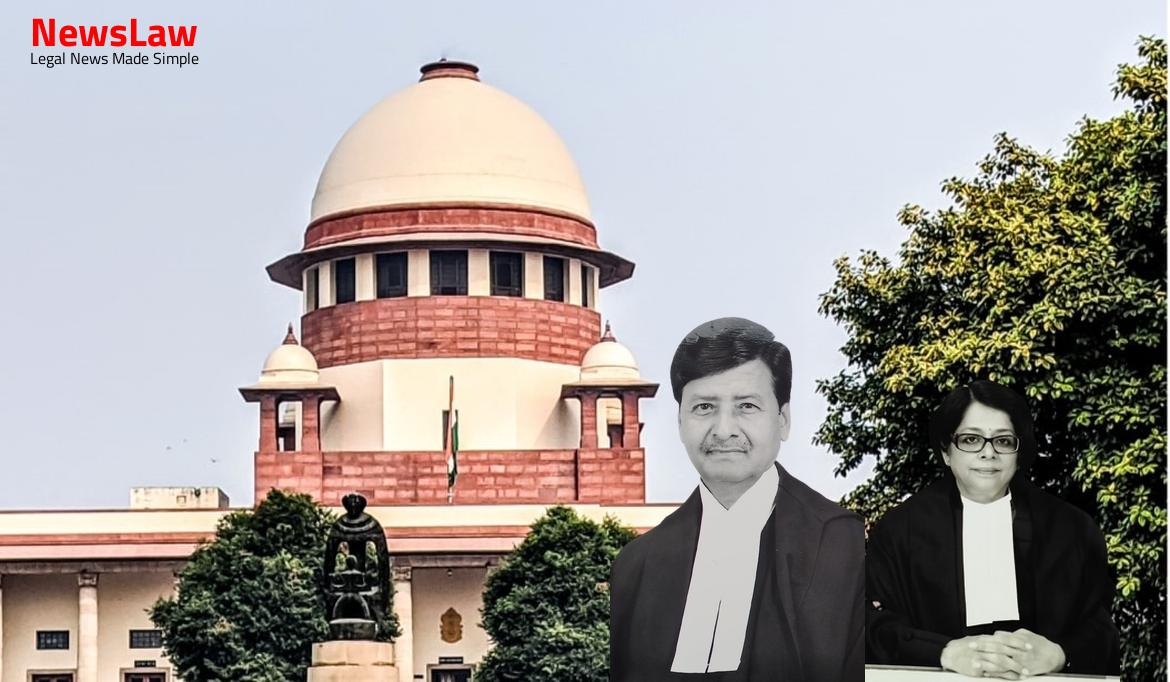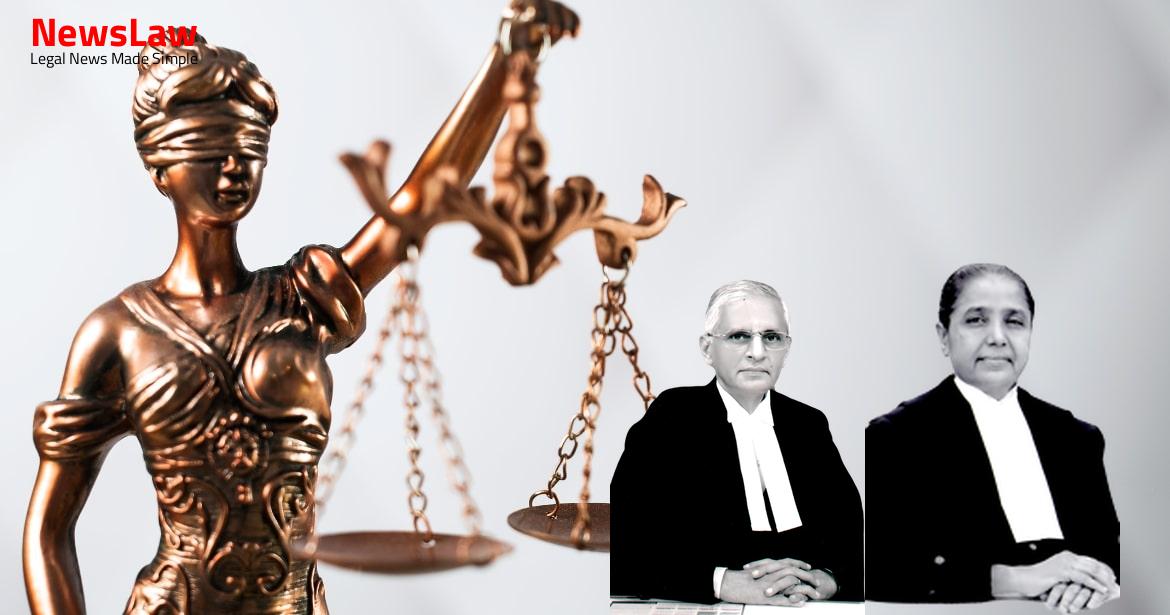A critical examination of the legal analysis conducted by the court in granting bail, highlighting the significance of transparency and accountability in judicial decisions. This blog delves into the complexities of bail granting processes, emphasizing the need for reasoned judgments to maintain the integrity of the legal system.
Facts
- Rupesh Kumar was returning from his friend’s house when he was caught by the respondent-accused and shot in the head along with another person named Deepak Kumar.
- The respondent-accused filed for bail by concealing his criminal history and was granted bail by the High Court in two cases – FIR No.93/2020 and FIR No.316/2017.
- The appellant, mother of the deceased Rupesh Kumar, filed FIR No.93/2020 accusing the respondent-accused of murdering her son by shooting him in the head.
- The appellant, an eyewitness to the killing, also lodged FIR No.316/2017 when her son was shot and sustained a bullet injury.
- The respondent-accused threatened the appellant to withdraw the complaint, leading to his arrest on 30.09.2020.
- The accused was also involved in a previous incident in 2017 where FIR No.316/2017 was filed for causing serious bullet injury to Rupesh Kumar.
- The respondent-accused absconded for seven months after FIR No.93/2020 was lodged before being arrested.
- The High Court granted bail to the respondent-accused in both cases despite previous rejections by the Sessions Court.
- The appeals have been filed by the appellant against the bail orders granted by the High Court.
Also Read: Court’s Legal Analysis on Specific Performance in Tribal Land Transfer Case
Arguments
- Appellant’s counsel argues that the respondent-accused has multiple cases pending against him, including attempted murder of the deceased and absconding for seven months after the killing.
- The informant, who is the mother of the deceased, has been threatened by the respondent-accused.
- The appellant challenges the bail granted to the respondent despite his criminal history.
- Court cannot conduct a detailed analysis during a bail hearing and should not act as a mini trial.
- Respondent’s counsel claims the respondent-accused was not at the crime scene and was 350 kms away on the night of the incident.
- The High Court did not provide reasons for granting bail to the respondent-accused, which allegedly committed grave crimes with potential for life imprisonment or death penalty.
- Respondent-accused is portrayed as a habitual offender who should not have been granted bail.
- Petitioner was in custody since 30.09.2020.
- False implication against the petitioner is not possible as he was at Araria during the time of occurrence.
- No chargesheet was filed against the petitioner initially.
- Chargesheet was filed against him only after a protest petition was filed.
- Court found the allegations against the respondent-accused to be false.
- Court rejected the argument that the respondent-accused had absconded.
Also Read: Clarification on Reservation for Scheduled Tribes in Union Territory
Analysis
- The High Court failed to consider important aspects of the case while granting bail to the respondent-accused.
- The respondent-accused was named in multiple cases, some of which were serious offenses like murder.
- There was a history of enmity between the accused and the deceased, further complicating the situation.
- The allegations against the respondent-accused were under Sections 341, 307, and others, indicating the severity of the charges.
- The court emphasized that when granting bail, it is crucial to balance the nature of the allegations, severity of punishment, potential witness interference, and overall impact on the trial’s integrity.
- Reasons for granting bail must be based on relevant grounds and should disregard extraneous considerations.
- Reasons are essential for a decision-making process as they ensure accountability, transparency, and adherence to natural justice.
- Judicial decisions should be reasoned based on relevant facts to uphold the rule of law and constitutional governance.
- Grant of bail is a discretionary order that should be exercised judiciously and not as a matter of course.
- Bail orders without cogent reasons cannot be sustained.
- Transparency in decision-making reduces errors and subjects the decisions to broader scrutiny.
- Judgments play a vital role in setting precedents for the future and require reasons for the decision as part of due process.
- Recording reasons acts as a restraint on possible arbitrary exercise of power by judicial, quasi-judicial, or administrative authorities.
- Grant of bail should consider the severity of the accusations, nature of evidence, apprehensions of witnesses being tampered with, and frivolity in prosecution.
- The cancellation of bail aims to protect fair trial, prevent tampering with evidence, and ensure justice by restraining the accused.
- Transparency is crucial to prevent abuse of judicial powers and justify decisions based on reasons.
- Reasons supporting decisions must be cogent, clear, and succinct to uphold justice and maintain public faith in the legal system.
Also Read: Analysis of Tax Exemption for Enemy Properties
Decision
- Petitioner directed to be enlarged on bail on furnishing bail bond of Rs. 10,000/- with two sureties of the like amount each.
- Bail to be furnished to the satisfaction of the learned Additional Chief Judicial Magistrate III, Patna.
- Case number for the connection: Naubatpur P.S. Case No. 93 of 2020.
- Bail subject to specified conditions.
Case Title: BRIJMANI DEVI Vs. PAPPU KUMAR (2021 INSC 919)
Case Number: Crl.A. No.-001663-001663 / 2021



